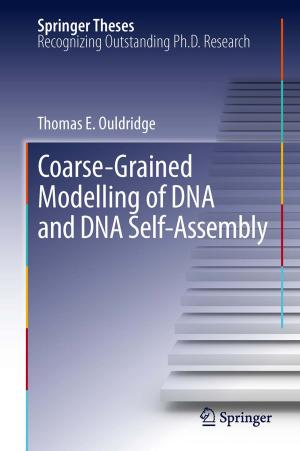Proteopathic Seeds and Neurodegenerative Diseases
Nonfiction, Health & Well Being, Medical, Medical Science, Pharmacology, Specialties, Internal Medicine, Neuroscience, Science & Nature, Science| Author: | ISBN: | 9783642354915 | |
| Publisher: | Springer Berlin Heidelberg | Publication: | March 27, 2013 |
| Imprint: | Springer | Language: | English |
| Author: | |
| ISBN: | 9783642354915 |
| Publisher: | Springer Berlin Heidelberg |
| Publication: | March 27, 2013 |
| Imprint: | Springer |
| Language: | English |
The misfolding and aggregation of specific proteins is an early and obligatory event in many of the age-related neurodegenerative diseases of humans. The initial cause of this pathogenic cascade and the means whereby disease spreads through the nervous system, remain uncertain. A recent surge of research, first instigated by pathologic similarities between prion disease and Alzheimer’s disease, increasingly implicates the conversion of disease-specific proteins into an aggregate-prone b-sheet-rich state as the prime mover of the neurodegenerative process. This prion-like corruptive protein templating or seeding now characterizes such clinically and etiologically diverse neurological disorders as Alzheimer´s disease, Parkinson’s disease, Huntington’s disease, amyotrophic lateral sclerosis, and frontotemporal lobar degeneration. Understanding the misfolding, aggregation, trafficking and pathogenicity of the affected proteins could therefore reveal universal pathomechanistic principles for some of the most devastating and intractable human brain disorders. It is time to accept that the prion concept is no longer confined to prionoses but is a promising concept for the understanding and treatment of a remarkable variety of diseases that afflict primarily our aging society.
The misfolding and aggregation of specific proteins is an early and obligatory event in many of the age-related neurodegenerative diseases of humans. The initial cause of this pathogenic cascade and the means whereby disease spreads through the nervous system, remain uncertain. A recent surge of research, first instigated by pathologic similarities between prion disease and Alzheimer’s disease, increasingly implicates the conversion of disease-specific proteins into an aggregate-prone b-sheet-rich state as the prime mover of the neurodegenerative process. This prion-like corruptive protein templating or seeding now characterizes such clinically and etiologically diverse neurological disorders as Alzheimer´s disease, Parkinson’s disease, Huntington’s disease, amyotrophic lateral sclerosis, and frontotemporal lobar degeneration. Understanding the misfolding, aggregation, trafficking and pathogenicity of the affected proteins could therefore reveal universal pathomechanistic principles for some of the most devastating and intractable human brain disorders. It is time to accept that the prion concept is no longer confined to prionoses but is a promising concept for the understanding and treatment of a remarkable variety of diseases that afflict primarily our aging society.















